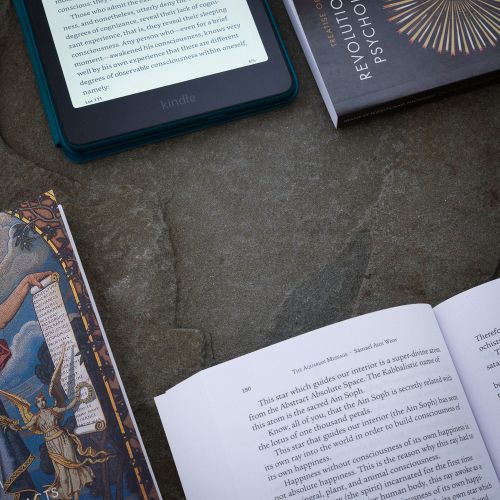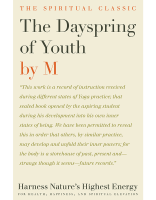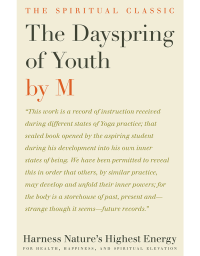THE student is contacted to the different elemental divisions by his teacher through the proper use of a symbol, and if the person has a strong creative nature he can, after his first steps in Yoga, intermittently contact Nature’s spheres of inspiration.
A student has permitted me to include in this book a fragment from an unpublished work. He had the necessary persistence and faithfully observed these occult teachings. He worked hard at his breathing exercises and developed his physical body, and, though for some time he had to be left to himself, he was able to develop his latent forces and was easily taken into his inner planes. Afterwards he was taught the use of symbols and was able intermittently to receive inspiration from the elemental hierarchies; the source of inspiration for those able to gain the interest of these spheres of majesty and beauty. Here follows the fragment wherein the goddess Minerva relates the Sad History of Arcadia.
Minerva speaks: “When the world was young this land was the cradle of Spring. As she grew her breath gave fragrance and coolness to the air and became the sylphs. Wherever her sandalled feet trod buds uncurled and hills and valleys shone. Whenever she sang birds were born and fluttered over the land; and whenever she spoke the waters unwound their silver tendrils and followed her. When she sat and thought the little people were born, and when she prayed the gods were created. And the flowers and birds, the naiads and sylphs, the little people and the great gods worked together and designed man. And when man stood upright and his eyes were lit with divinity, he gazed at the beauty of this land and the spirit of Poetry inspired him to name it ‘Arcadia.’
“This was the age when man was stately in thought, childlike in desire, and lovely to look upon. His eyes shone clearly and shadowed forth the width of his wisdom, and the gleam of that age still glows within the lambent minds of the poets, and within the fiery hearts of the prophets. This was the Golden Age; the age that flared from music, from poetry, and from the lover.
“Man’s needs were simple, his wishes few. Life did not run on steel legs and roar from brazen throats; the world did not move by the muscle of the machine and fill each minute with the weariness of monotonous labour. When the mornings rose they unfolded joys and not sorrows; when the evenings were born and the dews fell his slumbers were untroubled and deep. Happiness ran through him as a stream runs downhill: leaping, singing, flashing. Love burned like mellow sunlight and thoughts darted as swiftly as leaping hinds. For man honoured a simple creed: that life was given for joyfulness; that he dwelt within the radiance of the heroic light of the gods; and that their protective and strong fingers governed his destiny and understanding.
“Ah! the gods, the gods. The high-born of Arcadia, whose cymbals are the thunders, and bright spears the lightnings; who once ruled man with a gay enchantment. Ah! mighty Jupiter, judge of all things, when will you return to breathe justice into the minds of men? The world needs a new mantle and a new majesty, for her garments are threadbare; her queenliness has been dethroned. The creed that had the note of the faun’s pipe in it and the serenity of a Summer’s dusk has vanished.
“We treasured the music of the winds blown through the locks of the world; we treasured the lyrics of the birds and of the streams. We believed that Beauty was the gem that clasped all things together and that wisdom was the fire that flowed through this precious stone. We held that the blood of the gods enriched and ran through the veins of man. He who played with skilful fingers upon the lyre; he who chiselled marble and drew loveliness from it, and he who shook flame and dreams from words, were the princes of Arcadia. That was a great age; but now only a whisper from it, only a forlorn chord, sighs through the darkness, and the birds and the winds hear, and occasionally the dreamer.
“For Winter withers the petal; the soul becomes silvered as well as the head. Man grew old; but without the hope of Spring. The beauty that lay within marble was no more unsealed; the music that slept in the trembling lyre no more awakened; and the wisdom cradled in the lyric no more spoke. For eyes lacked clear sight, fingers lacked tenderness, and minds lacked depths. Darker and darker grew the years overshadowing the spirit of the people till they felt and thought greyly. Till their backs became bowed and their limbs slow, and their voices quivered thinly as the voices of the old. Their memories grew dim and faltered; and when we wandered amid them they gazed at us without understanding. And sometimes I would strike my shield at the birth of a great one, but they would not hear; and the gifts of the great one would often die with him. And sometimes Mercury would place a wreath about the brow of a favoured one and they would strike and stone him. And when Jupiter placed a sword into the hands of his servant they would mock him and deny his just sentences.
“And Apollo mourned: ‘I wandered among the ruins of Arcadia—the land that held the first fruits of the world—and saw that Spring and the rose had withered. The marble statues had fallen, the lute of Orpheus lay broken upon the temple floor. Alas! the beauty of man shines no more; he has forsaken our temples; dust lies upon our altars. His graciousness has flown, has crumbled as a flower. Fair as the morning on the waters was he, swift as the flash of spears; but now bitterness is within him, and greyness in his heart and hair. Were our temples not beautiful for him? Our groves fruitful? Our world stately?’”
Minerva ceased abruptly: John waited. When she resumed it was in another strain: “As you walked with me through the town you saw the degradation of its inhabitants. Those in whom beauty shimmered were beggars and persecuted; insensitive egotists who knew not the delicate tremors of inspiration were applauded. Men, who were once human, had become automatons, and we, who once ruled them, have been compelled to hide. But when we disappeared the realms of enchantment also disappeared; we wove a veil over the roads to magic. Sorrowfully we closed the doors to Wonder. But when we hid, man created other gods; for man must worship, if not a god, then a dream, a machine, a hero, a woman; for all that he worships is an echo of his lost splendour. And it is this that must be recovered ere we can reveal ourselves again.”
She ceased and held up a warning forefinger as John was about to speak: “Hush, can you hear? There is singing; so elusive and wild, so poignant.”
John barely breathed as he tried to hear. For some seconds there was silence. Then he heard; but it was so remote that he thought he imagined it. Then swiftly rushed upon him and swirled and beat into his ears a music of such forlorn, such despairing sweetness, that he almost wept. It evoked images of mountain peaks, cool, quick winds, and torrents of foaming waters. It was a singing that swept the mind clean and made it spacious; as though the brain had suddenly grown into a vast hall through which lovely oreads swept; and with it came the sense of the beauty of naked things. He was whirled into a storm of pagan freshness and wildness till his body felt clean and splendid. Then the voices dwindled as rapidly as they had rushed upon them, leaving only an echo of melody and an intense regret that he could hear no more.
After some moments’ silence he huskily whispered: “Oh! how beautifully they sang. It hurt. Tell me please. Who are they?”
The goddess replied: “They are the sylphs lamenting over the sorrows of this world.”
A melancholy silence fell upon both, whilst he listened to the fugitive chords that still haunted him with their ghostly sadness.
Again Minerva continued: “They weep because we have hidden ourselves and man has lost his freedom. But when Arcadia is set free and the spirit within man is released like a freshet, beauty will be revealed anew and not mocked; and inspiration will awaken within him like a sunrise. The mornings will unveil things fairer than light; and the evenings more joyful things than love. The forgotten majesties that slumber in the quietness will awaken and enfold man, and bring to his eyes a loftier glow; for he will be as lordly as a forest in Spring. But this will only come when he will be freed from the steel clasp of the machine; from the oppressors of this realm who have manacled his divinity, and will return to the simplicity of Nature. But his new wisdom will be nobler than his past wisdom; for it will be as wise as that wisdom that dwells behind the brows of the gods.”
Her voice rose and its silvery quality became golden: “Then he will enrobe himself in our meditations; tread our halls of crystal, and walk within our gardens of fire. Then Tempests will kneel before him, and he will clasp the quivering lightnings and unshackle the winds and make them carpets for his feet. The pulse of the Universe will shake through his heart and he will know the secret reveries of the star and the flower. This is the promise I make for him when he arises and throws off the rust of the ages and becomes young and clean again.”







